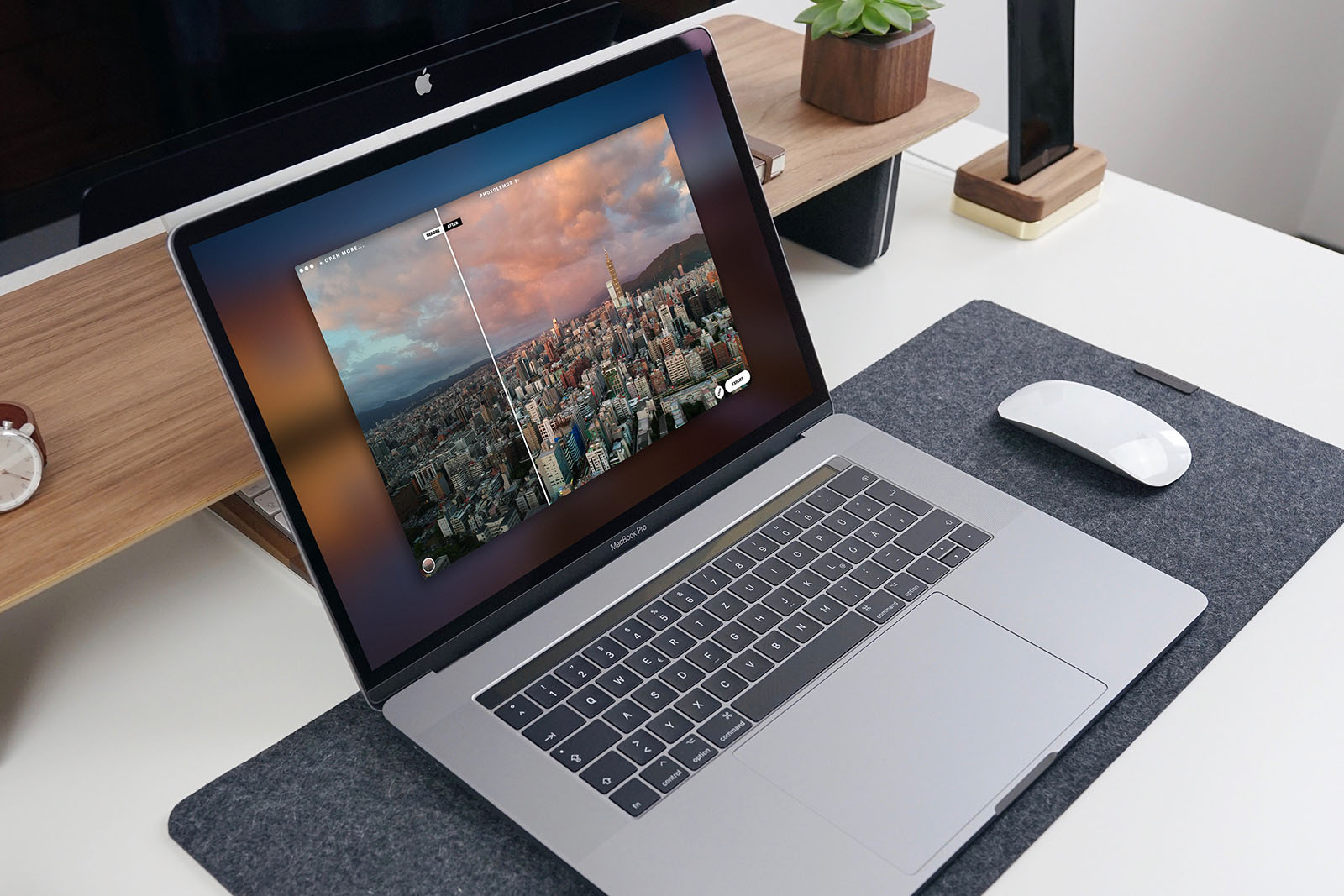
Who needs buttons to edit photos anyway? Photolemur, the artificially intelligent photo editor that edits photos with just a drag-and-drop, can now edit up to 200 images at a time, including retouching skin and whitening teeth. After becoming part of the Skylum family of photo software earlier this year, pre-orders for Photolemur 3 launched on August 29.
Photolemur now uses 14 different A.I.-based technologies to edit photos with or without input from the user. In fact, a photo can be edited without any buttons by dragging and dropping the image into the program, Skylum says. The software isn’t exactly button-free though — a slider controls the intensity of the effects, while additional options turn features on and off. Users can also choose from six new photo filters.
The update brings automatic retouching for portraits and photos of people. The third generation of the program can clear skin imperfections alongside whitening teeth. The software can even enlarge and sharpen the eyes, Skylum says. The company doesn’t go in depth at how the A.I. behind the new feature works, but there’s likely a form of facial recognition involved in order to determine what to edit. The beauty edits are off by default but can be activated by clicking on a face icon next to the slider.
The software can now also perform batch edits — after selecting one edited photo, the program will apply similar adjustments to a group of up to 200 images. While the entire A.I. software is designed to speed up the photo-editing process, the batch edits aim to do that while still allowing for some custom settings. The batch tool was on Skylum’s radar when the software became integrated into the company earlier this year.
Photolemur, designed for photographers who don’t have the know-how or the time to edit, is based on A.I. that “learned” from analyzing millions of edited photos and finding commonalities between edits for similar types of images. At the launch in 2017, the original creators (who also launched Skylum) said that the software would learn and improve over time as more images are fed into the program. Skylum says the program now has more than 130,000 users.
Photolemur 3 will be available on September 13 for Mac and Windows. Pre-orders for the program are discounted to $49 for up to five device activations. Single activations and an upgrade option for current users will also be available once the program launches at $39 and $19, respectively.
Editors' Recommendations
- Google One subscribers now have enhanced photo-editing tools on iPhones
- Two-click photo editing? Skylum Luminar teases A.I. photo app
- When copyrights make finding video soundtracks hard, this A.I. musician can help
- A.I. can now add the northern lights or the moon to your photos in Luminar 4.2
- Is the iPad Pro ready for real photo editing? I ditched my MacBook to find out